(Pictured above: Fr. Thomas M. Gallagher, OFM, Pastor at St. Patrick – St. Anthony Church.)
“The LGBT Book Group,” which is part of “The Open Hearts LGBT Ministry” at St. Patrick – St. Anthony Church in Hartford Connecticut, is currently reading “From Sin to Amazing Grace: Discovering the Queer Christ” by Patrick Cheng.
The Parish is staffed and overseen by the Franciscan Friars of the Holy Name Province; their Provincial Office is located in New York City. The Friars also operate gay-affirmative ministries at St. Francis of Assisi Parish in the Archdiocese of New York, at the St. Anthony Shrine in Boston, and at St. Francis of Assisi Parish in Raleigh. St. Francis of Assisi Parish has a long history of radical gay-approval: sponsoring “Pride” masses to coincide with the New York City gay “Pride Parade, gay-affirmative lectures and retreats, and a recent Mardi Gras party at a local gay bar. The LGBTQ Spirituality Group at the St. Anthony Shrine has held discussions on “Queer Theology,” coordinated events with the gay-affirmative outreach with St. Cecilia’s “Rainbow Ministry,” also located in Boston, and the Coordinator for the Group was one of the signatories on a Call To Action petition which called for changes regarding language in the Catechism referencing homosexuality.
Patrick Cheng is an Episcopal Priest currently stationed at The Church of the Transfiguration in New York City. According to his book “From Sin to Amazing Grace: Discovering the Queer Christ,” although he was raised “a devout Roman Catholic,” Cheng left the Church because he disagreed with the Catholic teachings regarding homosexuality. For fifteen years, he didn’t walk into a church. He wrote: “In those intervening years, I had met and fallen in love with my now-husband, Michael. Through Michael, I had experienced the power of God’s incarnational love in a way that no theology book or doctrine could ever convey.”
Cheng’s book is separated into two sections: the first part being a radical deconstruction of Christian morality away from what Cheng describes as a “crime-based model” to one that is centered on a “Queer Christ.” The second part of the book is subdivided into seven sections:
1.) Erotic Christ
2.) Out Christ
3.) Liberator Christ
4.) Transgressive Christ
5.) Self-Loving Christ
6.) Interconnected Christ
7.) Hybrid Christ
Here are some excerpts:
“Over the last few decades, many LGBT theologians have written about the Queer Christ. That is, they have responded to Jesus’ question of “who do you say that I am?,” in the same way in which theologians from other identity groups have written about the Black Christ, the Feminist Christ, the Asian Christ, and the contextual Christs. Thus, the primary implication of a move to a Christ-centered model of sin and grace for LGBT people is to place the Queer Christ at the center of thinking about sin and grace. In other words, both sin and grace are defined in terms of the Queer Christ.”
“If sin is conformity, then grace in the context of the Transgressive Christ can be understood as deviance, or the transgression of social, legal, and one’s religious boundaries and norms.”
“I have often thought that my own queerness has been an incredible gift of grace from God.”
“…as a manifestation of the grace of mutuality in light of the Erotic Christ. The grace of mutuality is not limited to couples or dyads; it can take the form of many different relational configurations.”
In his cosmology of the “Queer Christ,” Cheng proposes “seven new deadly queer sins:” exploitation, the closet, apathy, conformity, shame, isolation, singularity. In Cheng’s world view, it is a sin for an LGBT person to not “come-out,” to remain politically inactive in terms of LGBT advocacy, or conform to traditional Christian moral standards with regards to homosexuality.
In his earlier book, “Radical Love: An Introduction to Queer Theology,” published in 2011, Cheng discussed “God as the Divine ‘Top.’” In gay slang “top” refers to the insertive partner during anal sex.
Cheng wrote:
Queer theologians have parodied God’s traditional divine attribute of omnipotence – that is, God’s all powerful nature – by superimposing sexual roles on God…the God the Hebrew Bible, can be understood as being the “top” in a homoerotic relationship with David, the king of Israel – akin to that of a warrior chief and his boy companion.
He also wrote at length about the Blessed Virgin Mary:
Indeed, the Virgin Marty can be understood as the antithesis of “family values” insofar as she erases the boundaries between traditional family categories of parent, spouse, and child. This is significant because we can understand Mary as deconstructing gender and family roles as opposed to merely reinforcing them as the Roman Catholic church and fundamentalist Christians would have us believe.
In a 2012 article for The Huffington Post, Cheng wrote:
Same-sex marriages are sacramental because they are a reflection of the larger grace-filled relationship between God and humanity. The classical theological definition of a sacrament — including baptism, eucharist and marriage — is that it is a visible and external sign of God’s invisible grace. Same-sex marriages are holy because they are vehicles in which we can experience and gain a deeper understanding of God’s unearned and unmerited love for us.
Much of the “Queer Theology” expounded by Cheng has already made its way into the Catholic Church. Donal Godfrey, S.J., has spoken and written about both a “gay” Jesus as well as a transgender God. During a question and answer session following a talk given by gay Episcopal Priest Vincent Pizutto at Most Holy Redeemer in San Francisco, the notion of a sexual relationship with Christ was discussed. The Comunidad LGBT outreach in the Archdiocese of Los Angeles celebrated a day in honor of “Gay Saints:”
Last year Comunidad, the support group for the Ministry of Gay and Lesbian Catholics at St. Mathew’s Church in Long Beach, Ca where I serve as a board member, conducted one of our monthly gatherings as an honoring of “Gay Saints.”
In addition, the LGBT ministries at St. Cecilia’s in Boston and St. Paul the Apostle, have proposed, via their official Facebook pages, the idea of “Queer Saints” and “Queering Mary.” The Missionaries of the Precious Blood, Kansas City Province, celebrated mass with a picture of the “gay saints” Sergius and Bacchus.
The LGBT Book group at St. Anthony – St. Patrick Church previously read “Taking a Chance on God: Liberating Theology for Gays, Lesbians, and Their Lovers, Families, and Friends,” by John J. McNeill, S.J. In that book, McNeill wrote:
…John, the one person among Jesus’ disciples with whom we as gay people can frequently identity. If he was not actually gay himself, he is certainly depicted as having had a gay sensitivity. He always refers to himself as “the disciple to whom Jesus loved.”
Later in his book “Freedom, Glorious Freedom: The Spiritual Journey to the Fullness of Life for Gays, Lesbians, and Everybody Else,” McNeill added:
Any one of you who have a gay sensibility will be keenly aware of the special nature of the relationship of love that reunites Jesus and John.
The false theology of a “Queer Jesus” is present throughout gay-pop-culture:
The Annual Easter Day Hunky Jesus Contest in San Francisco or, why “gay” men sexualize everything.
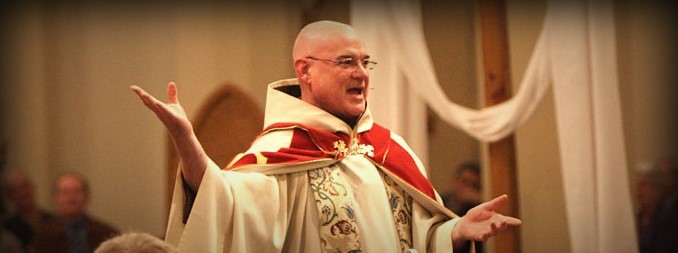
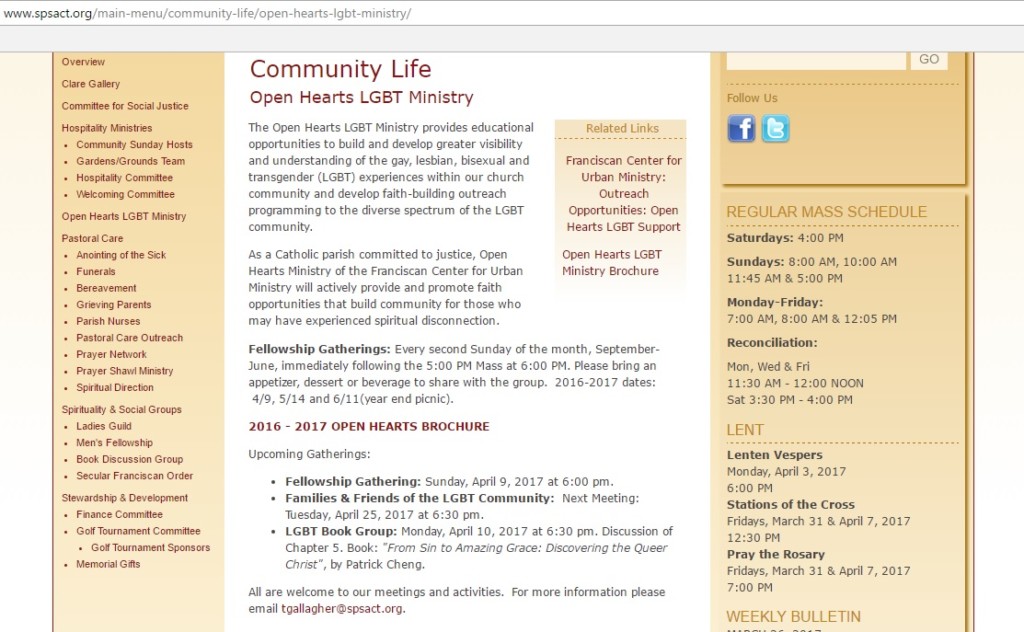

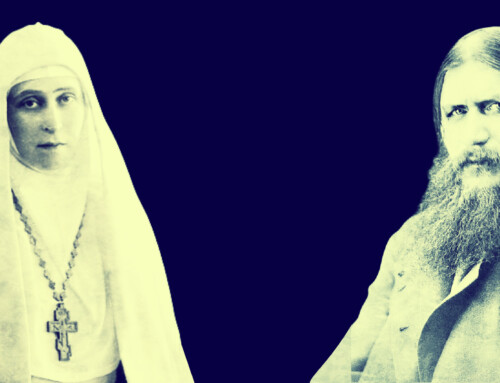
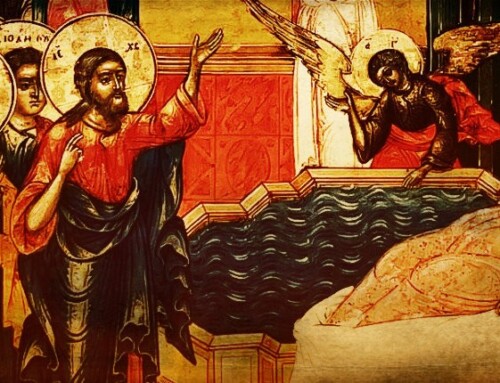
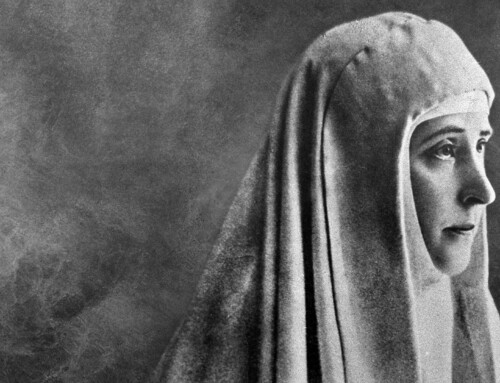
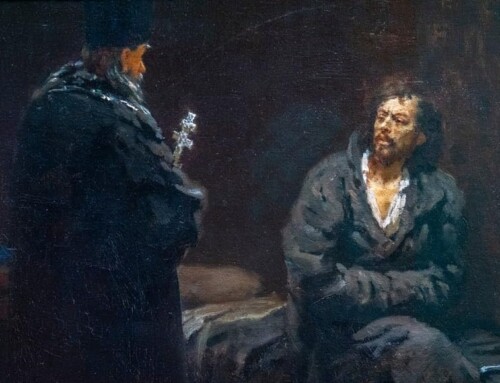
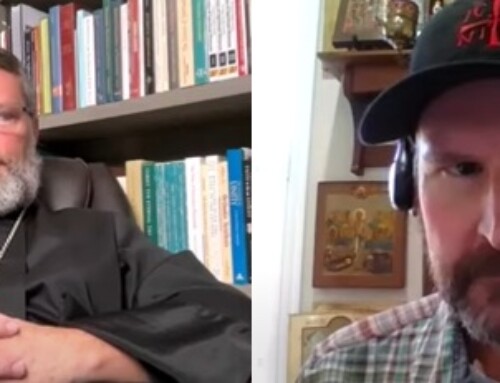
Reading this article simply made me dizzy and nauseous!
Jesus, Son of God, have mercy on us sinners!🙏🏽
Cannot GET more disgusting than this. GOD is the Final Judge.
The many Shepherds that are supposed to be examples and leaders of our Catholic church are really ‘Wolves in Sheep’s clothing.’
They are leading and have been leading countless of ‘Souls’ into hell. These so called Shepherds of our Catholic church are going to be accountable to the Almighty Judge Himself come Judgment day..!!!!!!!!